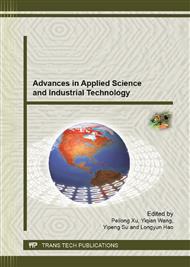p.116
p.120
p.125
p.130
p.134
p.138
p.143
p.147
p.151
The Degradation of Decabromodiphenyl Ether in the Supercritical Fluid
Abstract:
Currently, environmental contamination by polybrominated diphenyl ethers (PBDEs) in the world is of important concern and requires the effective remediation technologies. The degradation of decabromodiphenyl ether (BDE-209) in the supercritical n-hexane by zerovalent iron was studied in this work. The results showed that BDE-209 can be rapidly reduced into nona-, octa-, hepta-and lower brominated polybrominated diphenyl ethers (PBDEs) under the supercritical reaction conditions. Among n-hexane, methanol, tetrahydrofuran and mixed n-hexane+ tetrahydrofuran solvents, the conversion of BDE-209 in tetrahydrofuran was the highest. BDE-209 conversion increased with increased reaction temperature and pressure. Under the reaction condition: temperature: 523K; pressure: 3.2Mpa; reaction time: 10min; reaction system: 200ml 50mg BDE-209/L n-hexane; atmosphere: N2 and catalyst load: 2g/L, the conversion of BDE-209 was as high as 88.9%.
Info:
Periodical:
Pages:
134-137
Citation:
Online since:
September 2013
Authors:
Price:
Сopyright:
© 2013 Trans Tech Publications Ltd. All Rights Reserved
Share:
Citation:


